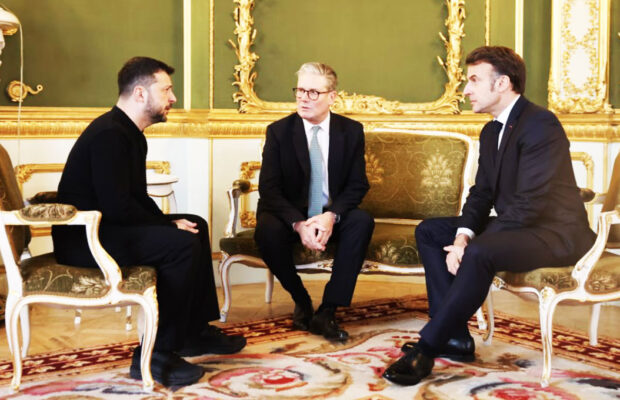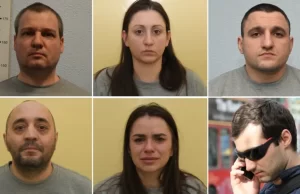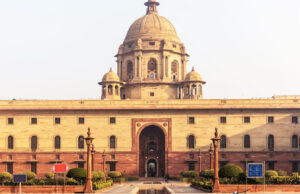Will Europe Back Zelenskyy?

Prakash Nanda
With the U.S. in no mood to provide military help and President Donald Trump all set tonegotiate with Russian President Vladimir Putin to end the war, Ukrainian President VolodymyrZelenskyy is now increasingly relying on the European members of NATO to continue the war againstRussia to recover its pre-2014 territories.
With an uncertain future in the course of what is now nearly a three-year war in Ukraine, thecountry seems to be short of arms to fight the Russians.
This comes at a time when the country is beset with corruption scandals in its defenseindustry and arms procurements, making the European countries, already discomforted overTrump’s policy towards Ukraine, hesitant arms providers.
At the time of writing, Ukraine’s Defense Minister Rustem Umerov is in Brussels. Heattended the meeting of the “Ukraine Defense Contact Group” (UDCG, also known as the Ramsteingroup) on February 12 and was expecting some good news from the NATO Defense Ministers’ Meeton February 13.
The UDCG is an alliance of 57 countries (all 32 members of NATO, including the U.S.), 25other countries) and the European Union supporting the defense of Ukraine by sending militaryequipment in response to the 2022 Russian invasion.
The news about the UDCG meeting has been dominated by what the new U.S. DefenseSecretary Pete Hegseth said during the meeting about how the war in Ukraine should end ratherthan military aid to the country to fight the war.
The only report about the aid that one could manage to get was that the Netherlands wouldsoon send Ukraine 25 YPR armored vehicles that could be used for medical evacuations and totransport wounded soldiers.
Hegseth advocated for a negotiated end to the war with security guarantees backed byEuropean and non-European troops deployed under a non-NATO mission. But he suggested thatAmerica would do little to provide them.
He made it clear that Ukraine would not be admitted to NATO, nor would America sendforces to Ukraine to secure any peace agreement, nor would it allow NATO to protect Europeantroops that might be deployed there. Ukraine’s security would be the task of European and non-European troops in a “non-NATO mission.”
It may be noted here that during the Biden administration, the United States provided morethan $65 billion in security assistance to Ukraine, including a variety of drones, counter-dronesystems, and other tools. The European Union and its member states have reportedly provided Kyivwith more than $48 billion in military assistance.
In the NATO-Ukraine Council session with Ukrainian Defence Minister Umerov on February13, NATO allies discussed the importance of continued support to Ukraine, “which is crucial so thatthis brutal war of aggression can come to a just and lasting end.” However, they did not promise thequantum of exact aid, apart from highlighting what they have done so far.
According to NATO Secretary General Mark Rutte, while NATO pledged 40 billion euros forUkraine in 2024 at the Washington Summit, the actual security assistance provided surpassedexpectations, reaching over 50 billion euros, with nearly 60% of that provided by Europe andCanada.
“All of this sends a clear signal that Europe and Canada are taking on a greater proportion ofthe transatlantic burden-sharing,” Rutte concluded.
If anything, it means an increasingly diminished contribution from the U.S. for Ukraine tofight the war.
Hegseth has made that clearer by saying, “Europe must provide the overwhelming share offuture lethal and non-lethal aid to Ukraine. Members of this contact group must meet at themoment. This means donating more ammunition and equipment, leveraging comparativeadvantages, expanding your defense industrial base, and, importantly, leveling with your citizensabout the threat facing Europe”.
Only Europe can now provide support to Ukraine. In 2025, Ukraine needs a stable and timelysupply of military aid. It also wants European partners to accelerate the supply of critical weapons,such as air defense, aircraft, and ammunition.
Finally, it needs investments in the defense industry in Ukraine and joint projects withEuropean partners.
As Zelenskyy said on January 15, “around 30% comes from Europe, and more than 30%,close to 40%, comes from the United States”. So now, he needs European help like never before,particularly when America, under a new President, has a skeptical stance on providing military helpto Ukraine.
However, for that to happen, Ukraine is supposed to put its own house in order. In acontroversy that seems to have threatened to undermine Western support for Ukraine, thecountry’s main weapons procurement agency — with a budget of more than $7 billion — wasrecently frozen because of a standoff over who should lead it.
There is a dispute over procurement between Ukrainian Minister of Defense RustemUmerov and Defense Procurement Agency (DPA) Director Maryna Bezrukova.
The former dismissed the latter on January 31 for “failure to meet delivery plans and otherviolations.” Umerov’s contention was that DPA’s poor procurement results had been confirmed byseveral members of the Ukrainian Parliament. According to these MPs, an MoD internal audit hasrevealed numerous problems with supply disruptions in 2024 and problematic intermediaries.
At the center of the dispute was the discovery last year that several Ukraine-made, Sovietcaliber 120 mm mortar shells, which the DPA had procured, were faulty and either failing to explodeor failing to hit their targets.
Apparently, Members of the Ukrainian Parliament have been voicing problems with otherDPA suppliers of a similar nature. DPA is allegedly said to be inefficient and corrupt in the use ofmoney to procure much-needed weapons and significant supply interruptions of ammunition for thearmy.
Incidentally, the DPA is Ukraine’s only agency to procure weapons, unmanned aerial vehicles(UAVs), and ammunition from abroad and inside Ukraine.
The local defense industry association Technological Forces of Ukraine also voiced similarconcerns on UAV procurement, stating that 75 percent of private contractors had not been providedgovernment contracts for 2025 as of December last year.
Not long ago, Ukraine’s Security Service (SBU) was said to have discovered a mass corruptionscheme in the purchase of weapons by the country’s military amounting to nearly $40 million (1.5billion Ukrainian hryvnia). The SBU said the embezzlement involved the purchase of 100,000 mortarrounds for Ukraine’s Armed Forces in the fall of 2022. “Not a single artillery shell” was ever sent, itsaid.
It may also be noted that Umerov was appointed as the defense minister in 2023 when hispredecessor Oleksii Reznikov was sacked over scandals, following an audit uncovering corruptionconnected to military procurement worth 10 billion hryvnia ($262 million) in only the four monthshe had been in post.
Umerov, therefore, says that he will not spare anyone indulging in corruption pertaining tohis ministry. He recently suspended Toomas Nakhkur, who led the defense ministry’s department fortechnical policy and weapons development, after being named an official suspect in an unspecifiedcriminal case, but believed to be something pertaining to corruption in the procurement ofweapons.
The defense minister is one of the few to have said that corruption in arms procurement ismaking Western partners consider sending more military aid to Kyiv.
The EurAsian Times had reported not long ago that Ukraine had a bad reputation as a hub ofsmuggled arms and ammunition, even before the Russian invasion. And after the invasion, thisimage has further worsened.
These scandals represent the overall institutional weakness and lack of coherence in theUkrainian defense industry and related procurement systems. Worse, these scandals are seen to begiving way to information distortion and manipulation within defense entities, leading to furtherresentment in the army, production and procurement paralysis, budget mismanagement, anddoubts among Western allies and partners about whether to further support Ukraine.
It is to be noted that though in a war for its very survival, Ukraine has also been in the newsover the years for being one of the most corrupt countries in the world.
Ukraine scored 35 out of 100 points on the 2024 Corruption Perceptions Index (CPI). In arecent study by Transparency International, Ukraine ranks 105th out of 180 countries. Apart fromRussia and Azerbaijan, no other European country is perceived as more corrupt than Ukraine.
Obviously, pervading corruption has adversely affected the war efforts in Ukraine. It isnoteworthy that Zelensky had dismissed his highly popular commander-in-chief, General ValeriyZaluzhny, who was apparently convinced that the President was responsible for the failure ofUkraine’s 2023 counteroffensive to score any significant battlefield successes. But General’spopularity was such that Zelensky had to buy peace by appointing him as Ukraine’s envoy to theUnited Kingdom, a month after he was removed from his position as the country’s commander-in-chief.
Opinion polls of those days (early 2024) suggested that the majority of people in Ukrainewanted General Zaluzhny to enter politics and stand against Zelensky for the Presidency.
The debate in Ukraine at the time was whether an “incompetent and corrupt civiliangovernment” could fight a war or whether the country should be run by “a charismatic general.”Zelensky’s perceived poor record in fighting corruption did not help matters.
Of course, as EurAsian Times has already pointed out, corruption has long been a problem inUkraine, and its membership in the European Union (EU) is facing a major hurdle.
To become a reliable partner, the West wants Ukraine to undertake many reforms within, atask Zelensky has not been up to. These include imperfect intellectual property laws governing jointenterprises in Ukraine and in potential partner countries, excessive regulation of state-ownedenterprises in Ukraine, and restrictions on defense companies in countries including the UnitedStates that create barriers to international cooperation. It should have the right legal frameworksand operational mechanisms in place.
Considering all this, it makes sense when experts say that corruption and the perception ofcorruption in Ukraine appear to undermine critical domestic and Western support for its war efforts.









You must be logged in to post a comment Login